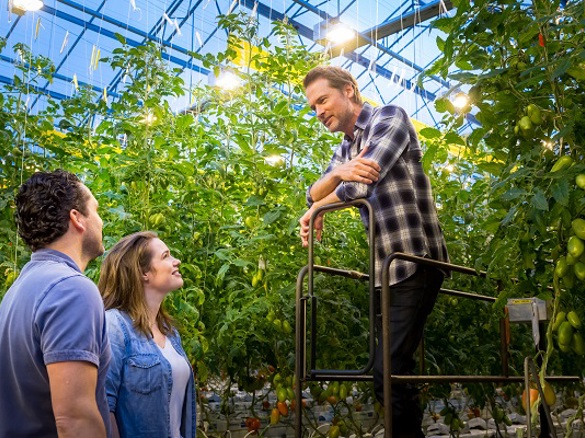

Ben je ondernemer of medewerker in de (glas)tuinbouw en wil je jezelf bekwamen in datagedreven sturing van bedrijfsprocessen? Of werk je als productontwikkelaar, marketeer of kwaliteitsmedewerker bij een voedingsmiddelenbedrijf en wil je jezelf professionaliseren in food innovation? Wij bieden jou diverse praktijkgerichte post-hbo opleidingen in de vakgebieden Agri en Voeding. De lesstof is actueel en sluit aan op wat jij morgen nodig hebt in je werk.
Incompany en Maatwerk
Mocht je een andere kennisvraag hebben, of vraagt jouw organisatie om een andere benadering dan ons reguliere opleidingsaanbod, dan kunnen wij je ook een incompanytraject en/of maatwerkprogramma aanbieden.
![]()
